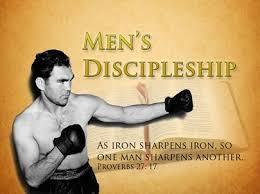Steve Murrell's Blog, page 63
October 16, 2013
October 15, 2013
Most Staff Meetings Are a Waste of Time
 DETROIT. Like all leaders, I have participated in neverending staff meetings that wasted everyone’s time. I am also guilty of leading some useless meetings. Occasionally I find myself in a meeting that actually saves time and accomplishes much.
DETROIT. Like all leaders, I have participated in neverending staff meetings that wasted everyone’s time. I am also guilty of leading some useless meetings. Occasionally I find myself in a meeting that actually saves time and accomplishes much.
No matter what industry you are working in – business, sports, education, entertainment, government, church – here are four essentials for making your staff meetings more effective and more efficient, or better and shorter.
1. FOCUS. Before the days of film-less auto-focus smartphone cameras, I had a Nikon FM. (I miss real cameras, and real film.) I remember looking through my viewfinder at a blurry subject, then with a deliberate twist of the lens, my subject would snap into focus and the perfect picture would be captured. The staff meeting is a time to eliminate the blur and refocus the team on the mission, values, and culture. The leader’s task is to keep everyone focused on the right subject, and to frame the picture by eliminating background distractions.
2. UPGRADE. I am writing this blog from the Detroit airport. In two hours I will board my Manila flight. Long international flights are more productive and enjoyable when I am able to get a mileage upgrade from coach to business class. Like long flights, weekly staff meetings are more productive and enjoyable when the goal is to upgrade not just to update. When in Nashville, I led a Tuesday 59-minute local church staff meeting that is divided into three 20-minute parts: prayer, update, upgrade. After quick “popcorn” updates from each major department, we then try to upgrade what is sub-par, what is average, and what is excellent. Updates are about what we are doing. Upgrades are about how to do it better. Use your staff meeting to upgrade, not just to update.
3. SIMPLIFY. I read an interesting article about simplicity in the Wall Street Journal this morning. Here’s the opening sentence: From Silicon Valley to Wall Street, simplicity is the new watchword. Books with titles like “Simple: Conquering the Crisis of Complexity” and “The Laws of Simplicity” are must reading in boardrooms. Companies aim for the elegance of Apple’s design and Google’s search box. Then there’s Obamacare. As I read this I wanted to add, then there’s the church staff meeting. Simplification is not a simple task. It requires time and effort. But it is worth every minute. Jesus was the master of simplification. He made complicated spiritual truths so simple that a child could understand. And He had a simple organizational structure based on relational discipleship. Wise leaders use the staff meeting to simplify the complicated.
4. COMMUNICATE. Once we have focused, upgraded, and simplified, we now must communicate. It accomplishes little if we have a great meeting and fail to communicate when the meeting is over. Even if your organization has a communications department, as the leader you are the CCO, the Chief Communications Officer.
Staff meetings do not have to be a necessary evil or a waste of time. They can be productive if we use them to focus, upgrade, simplify, and communicate.
October 9, 2013
Why “Funnel Vision” is Essential for Church Health
 If you want to lead a healthy church, you need to know that bowls, colanders, and funnels are not interchangeable tools. For those unfamiliar with kitchen utensils, here’s a primer:
If you want to lead a healthy church, you need to know that bowls, colanders, and funnels are not interchangeable tools. For those unfamiliar with kitchen utensils, here’s a primer:
Basically, a colander is a bowl with many holes, and a funnel is a bowl with one hole. A bowl is designed to contain stuff, a colander is designed to leak stuff, and a funnel is designed to channel or direct stuff.
I have a friend in the home repair business. He told me a funny story about a kid who was confused about the difference between a bowl and a colander. My friend was repairing a storm-damaged roof. The home-owner had put bowls under the leaks to preserve the carpet and furniture. When the repairman discovered another leak, he asked the kid who lived in the home to find one more bowl and place it under the last leak. The kid returned with a colander, which he placed under the leak – obviously an exercise in futility.
Many pastors are like that kid with the colander; they are leading churches that leak people. Other pastors have plugged the leaks and are building bowls, bigger bowls, and mega-bowls to hold more people than the church across town. The pastor with “bowl vision” feels important if he has a bigger Easter bowl than last year. The youth pastor with bowl vision feels successful if he has more teens in his youth bowl today than last semester. I suggest we stop obsessing with big bowls and full bowls. What really matters is not how many people we crowd into our bowls, but how many people are being discipled and how many are being equipped and empowered to make disciples.
I guess a bowl church is better than a colander church, but there is a better, more biblical way. It is time to toss the worthless colander vision, the carnal bowl vision, and embrace a biblical FUNNEL VISION. Bowl vision is about getting as many as possible to a church service. Funnel vision is about making disciples and getting those disciples out of the bowl and to the world.
Rather than accepting that we will always leak, or plugging the holes (“closing the backdoor”) so we can pack more people into our bowl, we need to become a funnel that channels people toward the discipleship journey.
Here’s what funnel vision looks like:
As the above drawing illustrates, with funnel vision, EVERYTHING we do as a church must help people move forward on the discipleship journey. If it does not serve as a catalyst for discipleship, don’t do it. If it only fills a bowl or plugs holes in our bowl, don’t do it.
Toss the bowls and colanders and embrace the funnel!
Jesus said He would build His church. He told us to make disciples. He is doing His part. Are we doing our part, or are we trying to help Him with His part?
October 2, 2013
September 26, 2013
The 6 W’s of Men’s Discipleship
 NASHVILLE. After decades of building my weekly rhythms around small group discipleship in Manila, the past few years splitting time between Nashville, Manila, and Delta airlines have been quite frustrating regarding small group discipleship. With a fresh resolve, I’m starting again.
NASHVILLE. After decades of building my weekly rhythms around small group discipleship in Manila, the past few years splitting time between Nashville, Manila, and Delta airlines have been quite frustrating regarding small group discipleship. With a fresh resolve, I’m starting again.
In a couple of hours I will meet with a small group of men at Starbucks for discipleship. This is my first meeting with this group. I hope someone shows up besides me and my neighborhood barista.
Here are the six essential W’s to discipling men:
1. WORD. Always start with the Bible, God’s Word. Since “all Scripture is useful for teaching, rebuking, correcting and training in righteousness” (2 Timothy 3:16) all discipleship is simply about getting men into the Word and getting the Word into men. The Word does the lion’s share of the discipleship. It teaches, rebukes, corrects, and trains. If you are not a good teacher, let the Word teach. If you are too timid to rebuke, let the Word rebuke. If you do not know what to correct, let the Word correct.
2. WORSHIP. After we establish men in the Word, we must help disciple them in a lifestyle of worship. When I say worship, I am not talking about twenty minutes of singing on Sunday morning. That is part of it, but worship is much more than singing off-key while accompanied by smoke machines and a loud amateur band. Here’s how Paul described real worship. “In view of God’s mercy, offer your bodies as a living sacrifice, holy and pleasing to God—this is your true and proper worship.” (Romans 12:1) In discipleship we must teach men to engage corporate worship (singing at church on Sunday) as well as sacrificially giving all to God Monday through Saturday (true & proper worship).
3. WORK. Since men spend much more time at work than at church, discipleship must connect with the workplace. How does a man apply God’s Word in the office? Biblical discipleship should help a man be better at his work, rather than coasting at the office waiting for the weekend. Undiscipled men endure their jobs all week waiting for Friday and Saturday night partying. Undiscipled religious men endure work all week waiting for Sunday morning worship. Both are wrong. Real disciples see work as a calling and serve, honor, and worship God through their work.
4. WOMEN. It is impossible to disciple men without dealing with what the Bible says about sexual boundaries. Gifted men, from King David to Samson to modern preachers, have wrecked their lives by crossing biblical boundaries with women. Married men and single men are equally vulnerable, and guilty. Just yesterday I heard a sad story of a businessman who got woman pregnant. She was not his wife. This guy was a regular church attender. But he was not involved in a discipleship group.
5. WEALTH. Like sexual boundaries, it is impossible to really disciple men without dealing with the root of all evil. Referring to money, Jesus said we cannot serve two masters, but many men try anyway. Money is an emotional and personal issue because it is a heart issue. When it comes to discipling men about money, I suggest you let the Word do the teaching, rebuking, correcting, and training when it comes to money. And let your example of generosity, integrity, discipline, and faith shout AMEN to what the Word says about wealth and money.
6. GOD’S WILL. The final of the big 6, is to help a man discern God’s will for his life. The best way to know God’s will is to refer back to point #2 above. If you give your life as a living sacrifice on God’s altar, “then you will be able to test and approve what God’s will is—his good, pleasing and perfect will.” If a man is unwilling to live a life of sacrifice, he will never fully know God’s good, pleasing and perfect will for his life. So, if you want to disciple men, boldly call them to sacrifice.
September 23, 2013
September 17, 2013
Steve Murrell's Blog
- Steve Murrell's profile
- 53 followers




